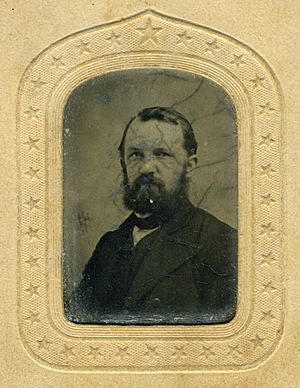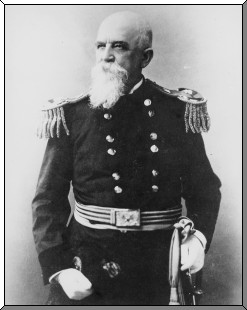William Price Craighill facts for kids
Quick facts for kids
William Price Craighill
|
|
|---|---|
 |
|
| Born | July 1, 1833 Charles Town, Virginia |
| Died | January 18, 1909 (aged 75) Charles Town, West Virginia |
| Allegiance | Union |
| Service/ |
United States Army Union Army |
| Years of service | 1853–1897 |
| Rank | |
| Commands held | Chief of Engineers |
| Battles/wars | American Civil War |
William Price Craighill (born July 1, 1833 – died January 18, 1909) was an important American engineer. He was born in Charles Town, Virginia, which is now in West Virginia. During the American Civil War, he worked as an engineer for the Union Army. Later in his career, he became the Chief of Engineers for the United States Army. He also wrote books and translated important military texts.
Becoming an Army Engineer
William Craighill went to the United States Military Academy at West Point. He was a very good student, graduating second in his class in 1853. Some of his classmates became famous generals, like Philip Sheridan and John Bell Hood.
After graduating, Craighill joined the United States Army Corps of Engineers. He helped build forts along the Atlantic coast, including Fort Delaware. From 1859 to 1862, he also taught engineering at West Point.
Craighill in the Civil War
Even though he was from Virginia, William Craighill chose to support the Union Army during the American Civil War. He was a key engineer for different army divisions and departments. He helped design and build defenses for important cities. These cities included Pittsburgh, Baltimore, San Francisco, and New York City.
Craighill also wrote an important book in 1862. It was called 1862 Army Officer's Pocket Companion: A Manual for Staff Officers in the Field. This book was one of the first field manuals for the United States Army. He also helped translate a famous book about war strategies, The Art of War, from French into English.
After the War: Building America
After the Civil War ended, Craighill continued his work as an engineer. He supervised the building of defenses at Baltimore Harbor and Hampton Roads. From 1870 to 1895, he led the Engineer Office in Baltimore. In this role, he managed projects to improve rivers and harbors in Maryland, Virginia, and North Carolina.
In 1875, the Army Corps of Engineers started building locks and dams on the Kanawha River in West Virginia. Craighill took charge of this project too. He completed the first movable wicket dams in the United States. He had traveled to France to study how these special dams worked. He became the first Southeast Division Engineer for the Corps. In 1895, President Grover Cleveland appointed him as the Chief of Engineers.
William Craighill retired two years later, in 1897. He passed away in Charles Town, West Virginia in 1909.
 | George Robert Carruthers |
 | Patricia Bath |
 | Jan Ernst Matzeliger |
 | Alexander Miles |


